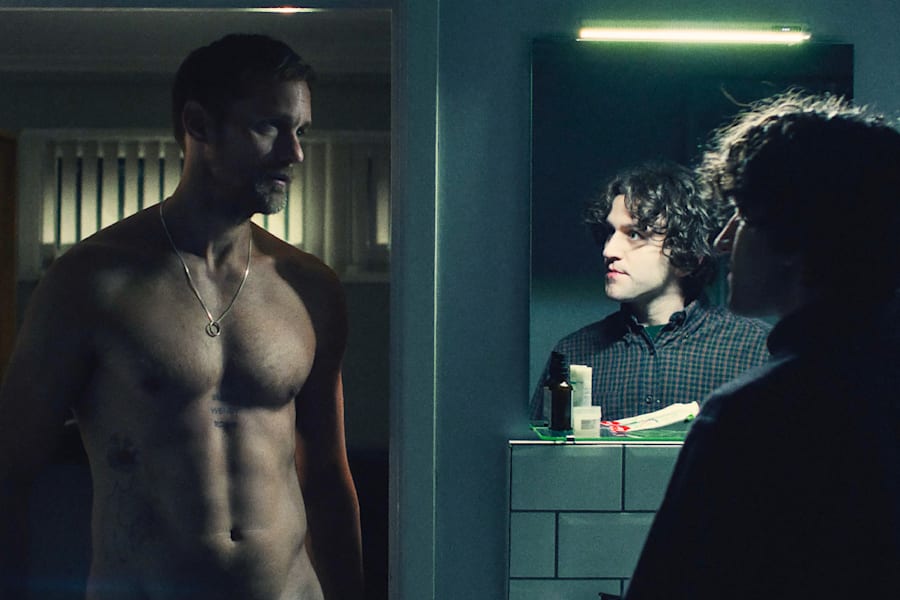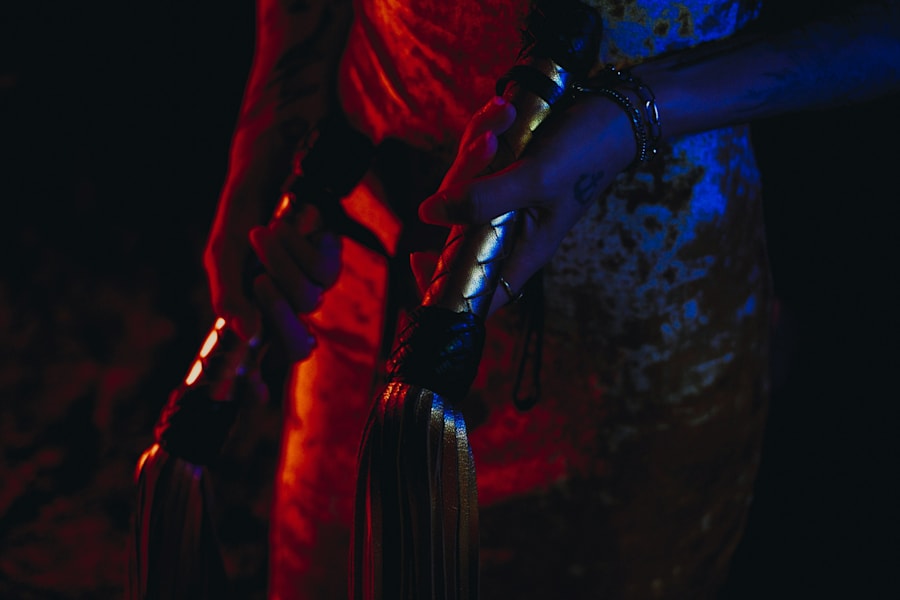
Rejection is an inevitable part of dating, but knowing that doesn't make it any easier.
Whether it's a ghosted text, a steamy talking stage that didn't lead to meeting IRL, or a promising connection that suddenly fizzled out, rejection in the early stages of dating can hit hard.
Part of why it stings so much is that these early moments are filled with possibility—our minds naturally project, fantasize, and build potential futures, even if we don’t realize we’re doing it. So when that dissolves, it’s not just the person we’re mourning, but the version of the connection we imagined. It's natural to feel disappointed, confused, or even frustrated when things don't pan out, but here's the thing: Rejection is part of the process. And though it feels like a punch to the gut now, it doesn't mean you've failed or that there is anything you did wrong. It could be the best thing for you in the long run.
In this guide, we'll dive into why rejection happens, how to cope with it, and how you can turn it into an opportunity for growth—because you can emerge from this stronger and more self-assured.
Why rejection happens in the early stages of dating
One of the toughest things to accept after rejection is that it's not always about you. In the early stages of dating, rejection often has more to do with timing, chemistry, and compatibility than anything you did or didn't do.
We've all been there, wondering what went wrong. The reality is that relationships, especially those that seem promising at first, are built on more than shared interests and attraction. Sometimes, people are on different wavelengths when it comes to what they want from a relationship. If one person is interested in something more serious and the other isn't, it's only natural that one person might back out.
Maybe the issue isn't compatibility, but rather timing. Someone might still be healing from a past relationship, focused on their career, or simply not in the right headspace for dating. Even when there's mutual interest, if one person isn't emotionally available, the relationship won't progress. Have you ever heard of "right person, wrong time"?
Sometimes, you meet someone who seems perfect on paper, but something feels… off. Chemistry isn't just about shared interests or physical attraction—it's about emotional and energetic alignment. And if it's not there, it's okay to walk away.
According to psychologist Guy Winch, the early stages of a relationship aren't just about feeling excited; they're also the time when you're unknowingly setting the tone for what's to come. He points out, "The realities we establish in the early days, weeks, and months of a romance are likely to determine the nature of the relationship going forward. Therefore, we have to be able to look beyond our excitement and enthusiasm, assess the behaviors and dynamics we are setting up, and address potential problems in their infancy." This means that if things don't feel quite right early on, it could actually be a good thing to address those concerns and possibly end things before more time and energy are invested.
How to deal with dating rejection
Rejection hurts. There's no way around it. But it's important to remember that just because you’ve been turned down, it doesn’t mean you’re not enough. It's completely natural to feel disappointed and confused, but you don’t have to—and won't—sit in those tough feelings forever. There are ways to navigate through this and come out feeling stronger, even if it doesn’t feel like it right now.
Feel your feelings
A range of emotions—sadness, frustration, confusion—are completely normal when rejection happens. Trying to suppress these feelings will only prolong the pain. Take a day (or two) to grieve. Let the emotions flow, but don't let them control you. Acknowledge the hurt, and then give yourself permission to heal.
As psychotherapist F. Diane Barth L.C.S.W. points out, it's easy to take rejection personally, especially when someone tells you they don't feel chemistry. But a lack of chemistry might have more to do with what's going on with them rather than anything about you. She explains, "If there's no chemistry, it may be because something's going on with them. So if someone tells you the chemistry isn't there, say something polite, and be grateful that you've gotten out of a potential relationship with someone who couldn't respond to what you have to offer."
Sex educator Erica Smith also offers a gentle but important reminder: "You can be cautiously optimistic, but in the end, remember that you have no control over whether someone wants to be in a romantic relationship with you or not." It's a hard truth that can help you navigate rejection with more grace. You're allowed to feel hopeful, but remember that your worth isn't tied to someone else's response.
Try reframing the experience
Instead of thinking, "Why wasn't I good enough?" ask yourself, "What can I learn from this?" Whether you were dating exclusively, seeing other people, or exploring something else entirely, whatever your romantic preferences, you deserve someone who truly aligns with your energy, values, and goals—and so do they! The real takeaway is that you’re one step closer to finding a connection that’s a better fit for both of you.
Seek support
Whether it's a friend who's also navigating the world of dating or a therapist who can help you unpack your feelings, talking about your experience can help you make sense of it. Sometimes, all you need is a fresh perspective to shake off the sting of rejection.
When the rejection is more complicated: A friend or coworker
When you’re dealing with rejection from someone you work with or already consider a friend, it can feel like rubbing salt in the wound. You’re not just dealing with the end of a potential romantic connection but are perhaps also trying to figure out how to preserve the friendship or professional relationship. This is where clear communication is key. Not only does it prevent any ambiguity, but it also respects the existing connection, allowing both people to process their feelings in a way that doesn't leave room for lingering confusion or hurt.
Sex educator Erica Smith advises: "Be mindful that you may need to set boundaries in your friendship around things like how much time you spend together, what kinds of activities you do together, and if you talk about romantic relationships together. Be willing to negotiate boundaries in order to keep your friendship."
Building resilience in the face of rejection
As hard as this is to hear, the more you experience rejection, the stronger you become in handling future setbacks. Here's how to build emotional resilience the next time rejection comes your way:
Turn rejection into reflection
Instead of blaming yourself, use rejection as a chance to reflect. Life coach Puja McClymont advises, "Rather than focus on what might be wrong with you, focus on what you can learn from the experience. Are there any red flags you missed? Reflecting this way helps you improve rather than feeling like a failure."
This mindset shift helps you grow and learn rather than internalizing the rejection, which helps you adapt and learn from setbacks.
Practice self-care
Taking care of yourself—physically and emotionally—is essential right now. Whether it’s hitting the gym, diving into a hobby, or just hanging out with people who make you feel good, self-care helps you find your balance again. The American Psychological Association emphasizes the importance of physical wellness, like getting enough sleep, proper nutrition, and exercise, which play a significant role in reducing stress and fostering emotional resilience.
Surround yourself with support
It’s okay to reach out to friends, family, or a therapist when you're processing rejection. Having someone to talk to can give you a fresh perspective and help you make sense of what you’re feeling. Surrounding yourself with caring, supportive people makes it easier to cope and move through tough times.
Focus on your goals and personal growth
Don't tie your self-worth to your dating situation. Use this time to invest in yourself. Maybe it’s picking up something you’ve always wanted to learn, diving into a passion project, or giving more attention to your career. Doing things that help you grow and feel good about yourself, no matter what's happening with your love life, will make a huge difference. Setting little goals for yourself can bring back that sense of purpose, and when you focus on building yourself up, bouncing back from rejection feels a lot easier.
What to avoid after rejection
Rejection can sting, and it's normal to feel hurt afterward. But there are a few things you can try to avoid that can make things worse. Here's what to steer clear of after rejection:
Don't take it personally
It’s natural to wonder, “What did I do wrong?” but the truth is, it usually isn’t about you. More often than not, it’s about timing, compatibility, or simply where the other person is in their life. If there’s something about you that doesn’t align, trust that the person will be honest with you if it’s something that needs to be addressed. Healthy relationships are built on open communication, and if someone truly cares, they’ll let you know what's going on. So try not to blame yourself—sometimes things just don’t click. Instead of blaming yourself, try focusing on what you can learn from the experience. This rejection doesn't define who you are.
Stop obsessing over the other person
We've all been there—replaying conversations over and over in our heads, wondering why things didn't work out. But this only keeps you stuck. It’s important to remember that limerence, the intense, often obsessive infatuation with another person, can make it even harder to let go. When you're in a state of limerence, the brain is flooded with obsessive thoughts and emotions, making it feel almost impossible to stop thinking about the other person.
Redirecting your energy toward things that help you move forward will help. Try exploring a new hobby, spending time with friends, or taking care of yourself. As noted by the American Psychiatric Association, rumination (dwelling on thoughts repeatedly) can contribute to depression or anxiety, making it harder to heal and move on. By focusing on positive activities and self-care, you can begin to break free from the cycle of obsession and start taking steps toward emotional recovery.
Avoid comparing yourself to others
It's natural to look at others and think they've got it all together, especially when you're feeling down. But comparison is the thief of joy. Everyone's path is different, and comparing yours to theirs will only make you feel worse. Focus on your own journey, and trust that you're exactly where you need to be.
Take your time when getting into another relationship
While it's good to get back on the horse, try not to rush or force things. It can be tempting to jump into another relationship to fill the void, but rushing into something new before you're ready can set you up for repeating the same patterns. Take the time you need to heal and reflect on what you really want in a relationship. When the time is right, you'll be ready for a connection that's healthy and meaningful.
Lean into self-compassion, not self-destruction
After rejection, it's natural to want to distract yourself or try to numb the pain, but those quick fixes don’t really help in the long run. Instead, focus on being kind to yourself. Embrace self-compassion by leaning into healthy ways to cope—whether that’s getting active, spending time with people who lift you, or simply giving yourself the space to feel and heal. The more kindness you show yourself, the quicker you'll bounce back.
Rejection might sting, but it's also a chance to grow. Each experience, even the tough ones, teaches you something new about what you want and value and how to approach dating more resiliently. The right connection won't feel like a challenge—it'll just click. In the meantime, focus on your own journey, take care of yourself, and remember that rejection is just a stepping stone to something better.
If you're looking to meet like-minded people and date with more confidence,Feeld's a great space to start. And if you're after more dating advice, we've got guides on everything from navigating dating with a closeted partner tospotting red flags and exploring open relationships.


